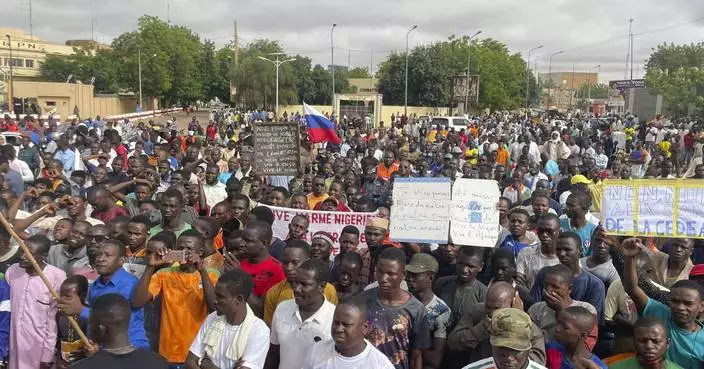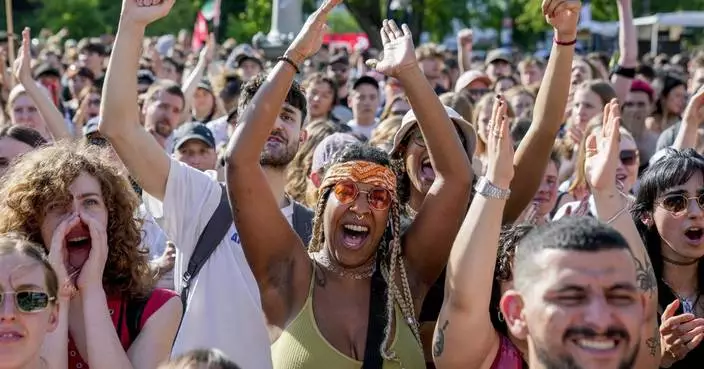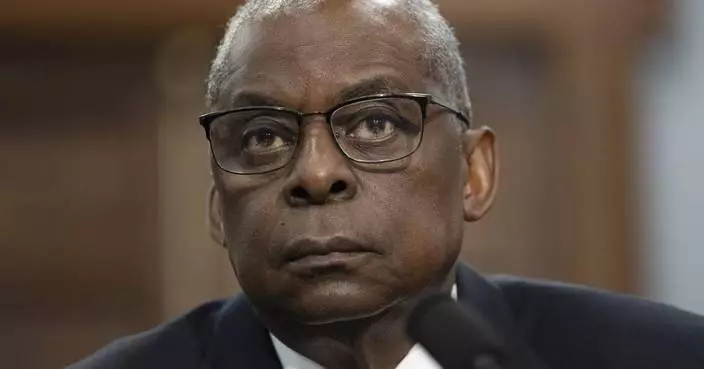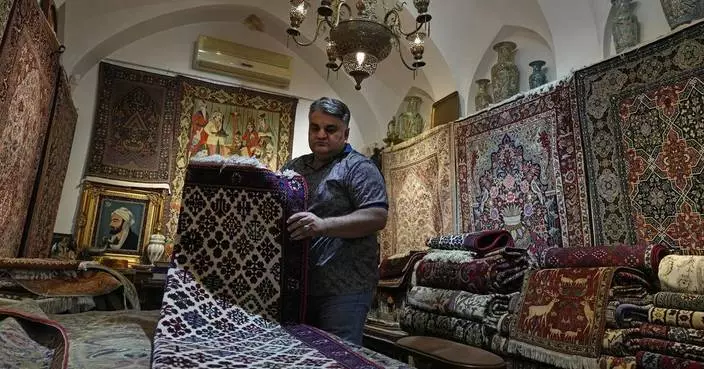Democrats hoping that Wednesday night's first presidential debate of the 2020 campaign would be clarifying probably came away disappointed.
A FEW STRONG MOMENTS
Several candidates, especially Massachusetts Sen. Elizabeth Warren, had strong moments, but there were few instances that either clearly elevated or diminished them significantly.
The sniping was mostly modulated, and the debate was notable for who was not attacked: namely, former Vice President Joe Biden, who is leading in nearly all early polls and is set to be part of the second night of debate Thursday.
The 10 Democrats in the first debate instead focused largely on issues of cultural and economic fairness, with some sharp disagreements. Criticism of President Donald Trump came late, with Washington Gov. Jay Inslee calling him the greatest threat to American security.
Warren wasn't the subject of direct criticism, even when she stood out as being one of only two candidates who said she'd abolish private health insurance.
ECONOMY
The debate kicked off with moderator Savannah Guthrie asking Warren if her many ambitious plans — free college, universal child care and health care — would hurt a booming economy.
"Who is this economy really working for?" Warren replied. "It's doing great for a thinner and thinner slice at the top."
It was soft toss of a question to Warren, and her response was echoed by other Democrats.
"Donald Trump just sits in the White House and gloats about what's going on, when you have so many people that are having trouble affording college and having trouble affording their premiums," said Minnesota Sen. Amy Klobuchar, a moderate who declined to swipe at Warren's ambitious plans.
Former Rep. Beto O'Rourke of Texas slammed Trump's tax cut as part of "an economy that is rigged to corporations and to the very wealthiest."
And Rep. Tim Ryan, who represents several declining industrial areas in Ohio, said, "This issue we're talking about has been going on for 40 years."
Only former Rep. John Delaney of Maryland clearly disagreed and said many of Warren's promises were not realistic.
IMMIGRATION
No issue in the first Democratic debate showcased the contrast with President Trump more than immigration. But the issue also exposed significant rifts among his challengers.
Former Housing and Urban Development Secretary Julian Castro challenged his rivals to join him in rewriting immigration laws so the mere illegal entry into the United States would no longer be a federal crime.
Castro made his most pointed strike at fellow Texan O'Rourke, who notably did not decriminalize illegal migration in his own immigration proposal. "If you truly want to change the system we have to change that section" of federal law, Castro said.
O'Rourke said he wanted to keep the provision so authorities could pursue drug and human traffickers. But Castro cut him off, noting there are separate laws that could be used against those crimes, and the entire stage broke down into crosstalk and shouting. Several other contenders — including Warren, New Jersey Sen. Cory Booker and Washington Gov. Jay Inslee — have already signed on to Castro's approach.
Klobuchar said she'd look at Castro's proposal, while Ryan quickly embraced it.
WORKING CLASS
There was more Spanish than expected. And there were appeals to the working-class voters who abandoned Democrats in favor of Trump in 2016.
O'Rourke showed off his fluent Spanish in his opening statement. Booker countered with his Spanish during a discussion of immigration, and also noted that he's probably the only candidate who lives in a poor, predominantly minority community. (Booker lives in Newark.) Castro spoke in Spanish during his closing statement and talked about saying "adios" to Trump.
New York Mayor Bill de Blasio — who noted he has an African American son — urged the party to "stop acting like the party of elites." Rep. Tim Ryan of Ohio said, "We have got to change the center of gravity of the Democratic party from being coastal and elitist and Ivy Leaguist."
MCCONNELL
Perhaps the hardest question for Democrats to answer was how the candidates would deal with a Republican. Not Trump, but Senate Majority Leader Mitch McConnell.
Republicans have a good chance of still controlling the Senate even if Democrats win the White House in 2020, and it's unlikely McConnell would allow any of the candidates' ambitious proposals on government-run health care or green energy to become law.
Warren promised she had a plan to deal with McConnell, though it seemed to center on rallying public opinion against him. "We have to push from the outside and lead from the inside," she said.
Booker proposed the presidential nominee campaign in longshot states like South Carolina in hopes of snaring enough seats to take over the Senate.
Inslee suggested eliminating the filibuster — which the president cannot do and which would strengthen McConnell's hand if the GOP remained in the majority.
WASHINGTON (AP) — Israel this week briefed Biden administration officials on a plan to evacuate Palestinian civilians ahead of a potential operation in the southern Gaza city of Rafah aimed at rooting out Hamas militants, according to U.S. officials familiar with the talks.
The officials, who were not authorized to comment publicly and requested anonymity to speak about the sensitive exchange, said that the plan detailed by the Israelis did not change the U.S. administration’s view that moving forward with an operation in Rafah would put too many innocent Palestinian civilians at risk.
Israeli Prime Minister Benjamin Netanyahu has vowed to carry out a military operation in Rafah despite warnings from President Joe Biden and other western officials that doing so would result in more civilian deaths and worsen an already dire humanitarian crisis.
The Biden administration has said there could be consequences for Israel should it move forward with the operation without a credible plan to safeguard civilians.
“Absent such a plan, we can’t support a major military operation going into Rafah because the damage it would do is beyond what’s acceptable,” U.S. Secretary of State Antony Blinken said late Friday at the Sedona Forum, an event in Arizona hosted by the McCain Institute.
Some 1.5 million Palestinians have sheltered in the southern Gaza city as the territory has been ravaged by the war that began on Oct. 7 after Hamas militants attacked Israel, killing 1,200 people and taking about 250 hostages.
The United Nations humanitarian aid agency on Friday said that hundreds of thousands of people would be “at imminent risk of death” if Israel moves forward with the Rafah assault. The border city is a critical entry point for humanitarian aid and is filled with displaced Palestinians, many in densely packed tent camps.
The officials added that the evacuation plan that the Israelis briefed was not finalized and both sides agreed to keep discussing the matter.
White House press secretary Karine Jean-Pierre told reporters on Friday that no “comprehensive” plan for a potential Rafah operation has been revealed by the Israelis to the White House. The operation, however, has been discussed during recent calls between Biden and Netanyahu as well as during recent virtual talks with top Israeli and U.S. national security officials.
“We want to make sure that those conversations continue because it is important to protect those Palestinian lives — those innocent lives,” Jean-Pierre said.
The revelation of Israel's continued push to carry out a Rafah operation came as CIA director William Burns arrived Friday in Egypt, where negotiators are trying to seal a cease-fire accord between Israel and Hamas.
Hamas is considering the latest proposal for a cease-fire and hostage release put forward by U.S., Egyptian and Qatari mediators, who are looking to avert the Rafah operation.
They have publicly pressed Hamas to accept the terms of the deal that would lead to an extended cease-fire and an exchange of Israeli hostages taken captive on Oct. 7 and Palestinian prisoners in Israeli jails.
Hamas has said it will send a delegation to Cairo in the coming days for further discussions on the offer, though it has not specified when.
Israel, and its allies, have sought to increase pressure on Hamas on the hostage negotiation. Signaling that Israel continues to move forward with its planning for a Rafah operation could be a tactic to nudge the militants to finalize the deal.
Netanyahu said earlier this week that Israeli forces would enter Rafah, which Israel says is Hamas’ last stronghold, regardless of whether a truce-for-hostages deal is struck. His comments appeared to be meant to appease his nationalist governing partners, and it was not clear whether they would have any bearing on any emerging deal with Hamas.
Blinken visited the region, including Israel, this week and called the latest proposal “extraordinarily generous” and said “the time to act is now.”
In Arizona on Friday, Blinken repeated remarks he made earlier this week that "the only thing standing between the people of Gaza and a cease-fire is Hamas.”
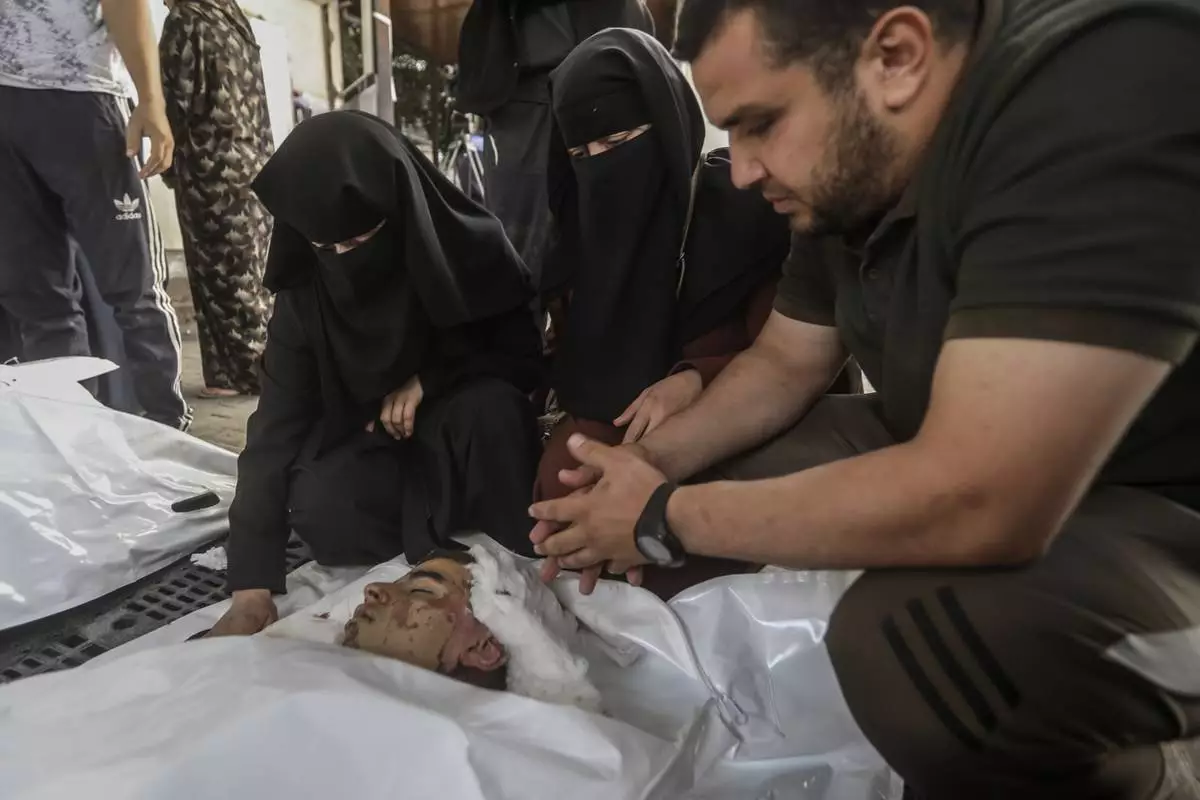
The Chahine family prepares to bury two adults and five boys and girls under the age of 16 after an overnight Israeli strike in Rafah, southern Gaza Strip, Friday, May 3, 2024. An Israeli strike on the city of Rafah on the southern edge of the Gaza Strip killed several people, including children, hospital officials said Friday. (AP Photo/Ismael Abu Dayyah)
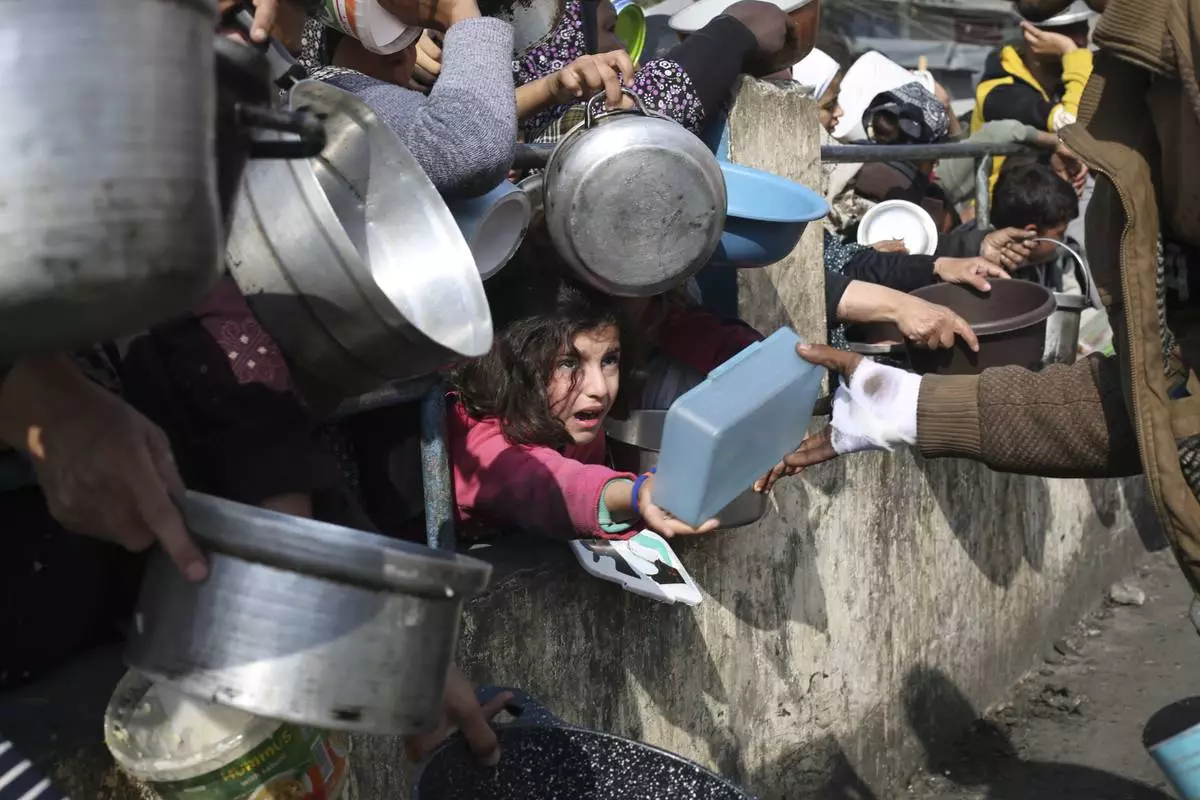
FILE - Palestinians line up for free food during the ongoing Israeli air and ground offensive on the Gaza Strip in Rafah, Jan. 9, 2024. A top U.N. official said Friday, May 3, 2024, that hard-hit northern Gaza was now in “full-blown famine" after more than six months of war between Israel and Hamas and severe Israeli restrictions on food deliveries to the Palestinian territory. (AP Photo/Hatem Ali, File)

Palestinians rescue a woman survived after the Israeli bombardment on a residential building of Abu Alenan family in Rafah, southern Gaza Strip, early Saturday, May 4, 2024. (AP Photo/Ismael Abu Dayyah)

President Joe Biden walks across the South Lawn of the White House as he talks with White House press secretary Karine Jean-Pierre Thursday, May 2, 2024, in Washington, after returning from a trip to North Carolina. (AP Photo/Mark Schiefelbein)








